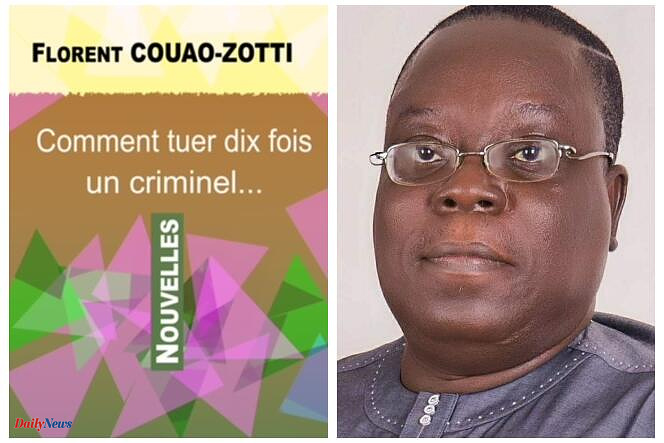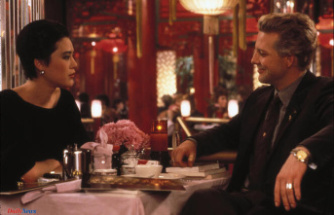There is a surprise in How to Kill a Criminal Ten Times..., the new book by Beninese writer Florent Couao-Zotti. Starting with this title which, if it makes you expect detective stories, simply corresponds to the last text of a collection which brings together eight, very different from each other. The author of Western tchoukoutou (Gallimard, 2018) and around fifteen other works offers here, in addition to the thriller and the urban comedy, a mystical tale, daily chronicles, a tragedy and even a dystopia.
The collection opens with a mysterious ritual in which a woman engages in order to attract the favor of the gods. Tired of giving birth to stillborn children, she followed the instructions of a very renowned healer but with dubious requirements: “For thirty days, it was necessary to give food to the beggars, the needy, the mad. And in the last week, she herself, dressed in rags, had to wander to the market to be made pregnant by a madman, a stranger, in the middle of the crowd. » Will the woman finally manage to give birth to a viable baby?
In Dantokpa, the eponymous market of Cotonou is personified. Reputedly the largest and most tortuous in West Africa, it chronicles its alleys and backrooms in an interior monologue.
Yet another short story, Le Blues du chachacha, shows in 1970 a modest woman dancing to the independence anthem popularized by the Congolese Joseph Kabasele. “The singer surfed on the spicy melodies and her voice, lively and effeminate, evolved in a crescendo […] And she laughed, happy to give meaning to the text, her face turned towards the ceiling, her eyes closed. » For a few moments, the neighborhood priest joins her, forgetting his austerity to give in despite himself to the call of dance, but leaving angry to hear the words of the song announcing the end of colonial rule.
If the entire collection may seem disparate at first glance, the author's language, his delicious earthiness, and his humor as well, erase this impression for the reader's greatest satisfaction. Throughout the pages, we feel the joy that Florent Couao-Zotti felt in following the trail of his own ideas and offering us this shared pleasure.
Second degree
To this linguistic enjoyment is added that of the situations and images, by turns tragic or comical, which take the reader by surprise, sometimes cleverly playing on their nerves. The writer shows a sensual, bustling urban world, which, if it is undoubtedly inspired by the city of Cotonou, could be located elsewhere in West Africa. We travel with it from the surface of the ground, flooded with sun or rain, to the bowels of the earth.
In one of the most impressive short stories of the whole, Le Futur recomposé, the author takes us into a worrying future where, after years of systematic feminicides, women, having become a rarity, are hunted down and violated by the people. masculine. “Statistics have predicted it since 2050: there will be no more women by the year 2100 [...] There is a risk of great imbalance. Today, there is one woman for every fifteen men, in the year 2100, there will be one woman for every one hundred and twenty-five males. »
At the beginning of the story, a young woman whose male disguise has been discovered finds herself forced to flee from men gathered in a pack. To achieve this, she will have to take refuge in the most disgusting of sewers.
Dystopian fantasy? Yes, if we decide to read the entire collection from a second degree perspective. Thanks to this distancing, we will above all perceive the humor and the excess of the situations and we will appreciate the art of the writer. But we can also have a darker reading of the book and take each story as emblematic of a more global observation of social failure. A more political reading of a world where gentleness and sentimentality no longer have a place and where brutality – even bestiality – has replaced the old social rules.
A picture no longer dystopian but apocalyptic, in short. But Florent Couao-Zotti does not really comment and keeps this double reading open, letting us draw our own conclusions. Pirouette of a talented writer.












